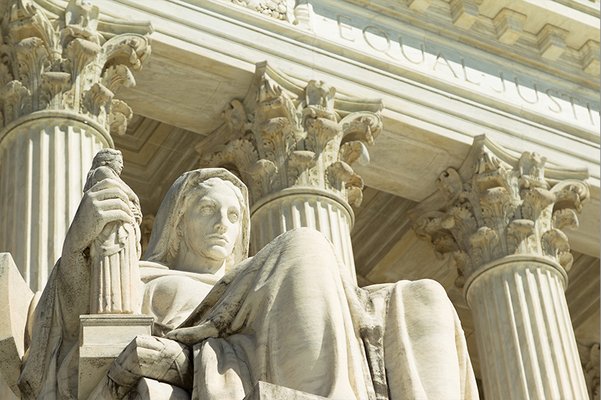U.S. Supreme Court Cites Restatement Second of Torts

In Thompson v. Clark, No. 20-659 (Apr. 4, 2022), the petitioner Larry Thompson was wrongfully accused by his sister-in-law, who suffered from mental illness, of sexually abusing his one-week-old daughter. Although the petitioner attempted to prevent emergency medical technicians and police officers from entering his apartment without a warrant, the officers nevertheless entered and, after a brief scuffle, the petitioner’s baby was taken to a hospital, where no signs of abuse were discovered, and the petitioner was arrested and charged with obstructing government administration and resisting arrest. The petitioner spent two days in jail before the prosecution eventually moved to dismiss the charges without explanation, and the trial judge dismissed the case, also without explanation.
The petitioner proceeded to file a 42 U.S.C. § 1983 suit for damages against the police officers, alleging, among other things, a Fourth Amendment claim for malicious prosecution, sometimes referred to as a claim for unreasonable seizure pursuant to legal process. The U.S. District Court for the Eastern District of New York granted judgment to the respondents on the petitioner’s Fourth Amendment claim, ruling that the petitioner’s criminal case had not ended in a way that affirmatively indicated his innocence. The U.S. Court of Appeals for the Second Circuit affirmed the dismissal of the petitioner’s claim.
Resolving a split among the circuits over how to apply the favorable-termination requirement, the U.S. Supreme Court held that a Fourth Amendment claim under § 1983 for malicious prosecution did not require the plaintiff to show that the criminal prosecution ended with some affirmative indication of innocence, such as by an acquittal or through a dismissal accompanied by a statement from the judge that the evidence was insufficient; the plaintiff only had to show that the criminal prosecution ended without a conviction. Noting that the petitioner had satisfied that requirement, the Court accordingly reversed the judgment of the Second Circuit and remanded for further proceedings.
Associate Justice Brett M. Kavanaugh, who delivered the opinion of the Court, rejected the respondents’ argument based on Restatement of the Law Second, Torts § 660, which provided that, “for purposes of a malicious prosecution claim, a criminal case terminates ‘in favor of the accused’ when the prosecution ends in a way ‘as to indicate the innocence of the accused.”’ Justice Kavanaugh explained that, in order to determine the elements of a constitutional claim under § 1983, the Court “first look[ed] to the elements of the most analogous tort as of 1871 when § 1983 was enacted,” and that, “in the overwhelming majority of American jurisdictions that had considered the issue as of 1871, a plaintiff alleging malicious prosecution did not need to show that his prosecution had ended with some affirmative indication of innocence.” According to Justice Kavanaugh, the respondents’ reliance on Restatement of the Law Second, Torts § 660, which was approved by The American Law Institute in 1976 and published the following year, was therefore flawed, because § 660 did not purport to describe the consensus of American law as of 1871.
In a dissent, Associate Justice Samuel A. Alito argued in favor of affirming the judgment below on the ground that a malicious-prosecution claim could not be brought under the Fourth Amendment. Justice Alito reasoned that “a Fourth Amendment unreasonable-seizure claim [was] not analogous to a claim for malicious prosecution,” but rather, to a claim for false arrest and false imprisonment under Restatement of the Law Second, Torts § 35.
